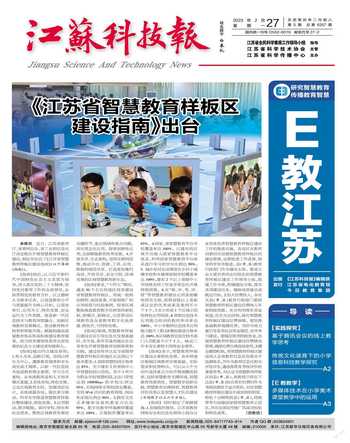2030 Education for Sustainable Development:A roadmap(Ⅲ)
Product by UNESCO(聯(lián)合國教科文組織)
2030可持續(xù)發(fā)展教育路線圖(三)
Meaningful transformation and transformative actions for sustainable development are most likely to take place in the community. It is in their daily lives, at the community level, where learners and people make their choices for sustainable development and act upon them. It is also in the local community where people find partners for their sustainability efforts.
This is why active cooperation between learning institutions and the community should be promoted to ensure the latest knowledge and practices for sustainable development are utilized to advance the local agenda.
Main actors
● Local public authorities, including municipal governments, city councils and education offices, as well as policy-makers at national and regional level.
● Civil-society organizations, private companies, and media in the community.
● Formal and non-formal education stakeholders in the community, including community learning centres and higher education institutions.
● All people in the local community.
● UNESCO and its partners.
Suggested actions
● Local public authorities, including municipal governments, city councils and education offices,in coordination with all concerned stakeholders in the community, should develop an action plan on how the whole community can become a learning laboratory for sustainable development and an important element of ESD for 2030 country initiatives, providing opportunities for all citizens to become change agents.
● Local public authorities, in coordination with all concerned stakeholders, including civil society organizations, private companies and local media, should provide capacity development for local decision-makers and opinion leaders as well as for the wider public, unpacking the SDGs to understand their concrete local implications in the community. This includes informal learning in daily life such as providing infrastructures for the safe use of public transport and regular sustainability information in the local newspaper, among others.
● Formal and non-formal education providers in the community should coordinate their programmes so that together they address all SDGs and related local sustainability challenges in a coherent way. Community learning centres can serve as a hub for lifelong learning on ESD in their communities.
● Policy-makers at national level should encourage and support the efforts made by local communities and coordinate them as a part of national action on ESD for 2030 and national contributions to the achievement of the SDGs. This includes providing incentives for local authorities to include localized ESD in education curricula as well as embedding ESD in their lifelong learning systems.
● All people in the local community should actively take interest in key sustainability challenges, develop skills to compare different future scenarios for their community, embrace values and attitudes that support a more sustainable future, engage in public decision-making processes and take action as responsible members of the community.
To support these actions, UNESCO and its UN partners among others, collaborate with existing networks of cities and communities to integrate ESD at all levels of learning in local communities and align national and local level actions, and support global platforms for local communities to enhance partnership and collaboration on ESD.
譯文
加快地方層面行動
對可持續(xù)發(fā)展來說,重要的變革和變革性行動最有可能發(fā)生在社區(qū)。在社區(qū)層面,學(xué)習(xí)者和人們在日常生活中為可持續(xù)發(fā)展做出選擇并付諸行動。在當(dāng)?shù)厣鐓^(qū),人們也可以為他們的可持續(xù)發(fā)展努力尋找合作伙伴。
因此,應(yīng)促進(jìn)學(xué)習(xí)機(jī)構(gòu)和社區(qū)之間的積極合作,以確保利用最新的可持續(xù)發(fā)展知識和實(shí)踐來推進(jìn)地方議程。
主要行動者
●地方當(dāng)局,包括市政府、市議會和教育局,以及國家和地區(qū)層面的政策制定者。
●民間社會組織、私營公司和社區(qū)媒體。
●社區(qū)中的正規(guī)和非正規(guī)教育利益攸關(guān)方,包括社區(qū)學(xué)習(xí)中心和高等教育機(jī)構(gòu)。
●當(dāng)?shù)厣鐓^(qū)的所有人員。
●教科文組織及其合作伙伴。
建議采取的行動
●地方當(dāng)局,包括市政府、市議會和教育局,應(yīng)與社區(qū)內(nèi)所有相關(guān)利益攸關(guān)方協(xié)調(diào),就整個(gè)社區(qū)如何成為可持續(xù)發(fā)展學(xué)習(xí)實(shí)驗(yàn)室和“2030年可持續(xù)發(fā)展教育”國家舉措的重要一分子制定一項(xiàng)行動計(jì)劃,為所有公民提供成為變革推動者的機(jī)會。
●地方當(dāng)局應(yīng)與所有相關(guān)利益攸關(guān)方(包括民間社會組織、私營公司和當(dāng)?shù)孛襟w)協(xié)調(diào),針對當(dāng)?shù)貨Q策者和輿論領(lǐng)袖以及廣大公眾開展能力建設(shè),拆解剖析可持續(xù)發(fā)展目標(biāo),使其了解這些目標(biāo)對當(dāng)?shù)厣鐓^(qū)的具體影響。具體包括日常生活中的非正式學(xué)習(xí),例如,為安全使用公共交通提供基礎(chǔ)設(shè)施,以及在當(dāng)?shù)貓?bào)紙上定期發(fā)布可持續(xù)性信息,等等。
●社區(qū)中正規(guī)和非正規(guī)教育提供者應(yīng)統(tǒng)籌協(xié)調(diào)其計(jì)劃,以便協(xié)調(diào)一致地落實(shí)所有可持續(xù)發(fā)展目標(biāo)并積極應(yīng)對當(dāng)?shù)叵嚓P(guān)的可持續(xù)性挑戰(zhàn)。社區(qū)學(xué)習(xí)中心可以作為本社區(qū)可持續(xù)發(fā)展教育終身學(xué)習(xí)中心。
●國家層面的政策制定者應(yīng)鼓勵(lì)和支持地方社區(qū)所做的努力并加以協(xié)調(diào),將其作為“2030年可持續(xù)發(fā)展教育”國家行動和為實(shí)現(xiàn)可持續(xù)發(fā)展目標(biāo)之國家貢獻(xiàn)的一部分。具體包括激勵(lì)地方當(dāng)局將本地化的可持續(xù)發(fā)展教育納入教育課程,以及將可持續(xù)發(fā)展教育納入其終身學(xué)習(xí)體系。
地方社區(qū)的所有人員都應(yīng)積極關(guān)注重大的可持續(xù)性挑戰(zhàn),培養(yǎng)比較所在社區(qū)不同未來前景的技能,擁護(hù)那些會帶來更加可持續(xù)的未來的價(jià)值觀和態(tài)度,作為負(fù)責(zé)任的社區(qū)成員參與公共決策進(jìn)程并采取行動。
國際資訊
CoSN:《2023年基礎(chǔ)教育創(chuàng)新驅(qū)動力報(bào)告》發(fā)布
CoSN(美國學(xué)校網(wǎng)絡(luò)聯(lián)合會)近日發(fā)布了《2023年基礎(chǔ)教育創(chuàng)新驅(qū)動力報(bào)告》,該報(bào)告屬于國際教育信息化發(fā)展的重要參考報(bào)告。CoSN咨詢委員會由100名全球教育工作者和行業(yè)領(lǐng)導(dǎo)者組成,并選擇影響未來教育技術(shù)的三大挑戰(zhàn)、趨勢進(jìn)行在線討論和調(diào)查,在每個(gè)類別中選取能夠改變教學(xué)和學(xué)習(xí)的主題。報(bào)告概述了圍繞系統(tǒng)思想的明確協(xié)同作用,以及從孤立的應(yīng)用程序和功能到教育生態(tài)系統(tǒng)的轉(zhuǎn)變過程。
CoSN首席執(zhí)行官基思·R.克魯格表示:“疫情將繼續(xù)影響教育面臨的機(jī)遇和挑戰(zhàn),例如尋找和留住員工、克服數(shù)字公平以及滿足學(xué)生和教育工作者的社會情感需求。同樣,人工智能等技術(shù)推動因素正在主導(dǎo)教育創(chuàng)新的對話。”
報(bào)告預(yù)測2023年排名前三的挑戰(zhàn)是吸引和留住教育工作者、IT專業(yè)人員,設(shè)計(jì)有效的數(shù)字生態(tài)系統(tǒng)和數(shù)字權(quán)益。而三大趨勢則是培養(yǎng)管理者和領(lǐng)導(dǎo)力,學(xué)習(xí)機(jī)構(gòu)和社會情感學(xué)習(xí)。
(CoSN官網(wǎng))
日本:著手規(guī)劃遠(yuǎn)程教育新方案
近日,日本文部科學(xué)省在義務(wù)教育工作會議上探討如何利用網(wǎng)絡(luò)促進(jìn)學(xué)生學(xué)習(xí),并提出促進(jìn)遠(yuǎn)程教育的相關(guān)方案。
日本文部科學(xué)省提出,遠(yuǎn)程教育可以擴(kuò)大學(xué)習(xí)范圍,培養(yǎng)學(xué)生的多樣性思維,在保障學(xué)生平等學(xué)習(xí)機(jī)會的同時(shí)因材施教,為學(xué)生個(gè)性化成長提供幫助,未來教育應(yīng)將線下授課與遠(yuǎn)程教育有機(jī)融合。在此過程中,教師應(yīng)與家庭、社區(qū)密切合作,幫助學(xué)生開展個(gè)性化學(xué)習(xí)和合作學(xué)習(xí)。具體實(shí)施上,日本文部科學(xué)省為促進(jìn)遠(yuǎn)程教育提出了聯(lián)合授課型、教師支援型、充實(shí)課程型三種路徑。
(英國《大學(xué)世界新聞》)

